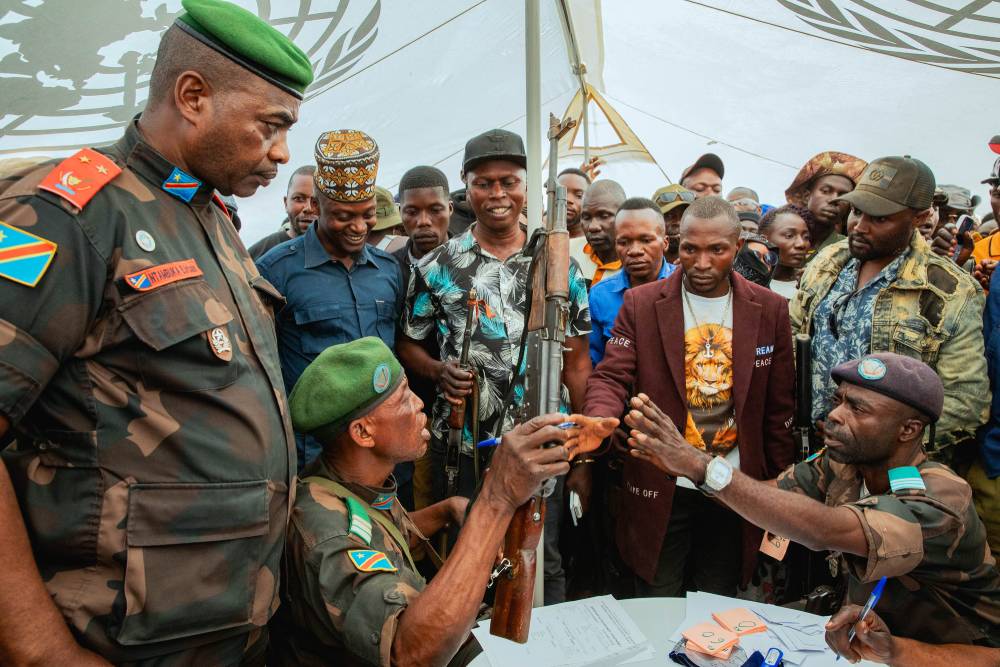From October 28 to 31, UNIDIR contributed to the 2025 Disarmament, Demobilization and Reintegration (DDR) Symposium, which brought together global partners to reflect on how data-driven insights can strengthen responses to evolving conflict and reintegration challenges.
On the first day, Kato Van Broeckhoven, Deputy Head of the Managing Exits from Armed Conflict Project, presented at the high-level event ‘From Violence to Healing: Moving Towards the Next Generation of DDR” hosted by the Permanent Representation of Germany to the UN in New York. The discussion convened practitioners, a former combatant, DDR specialists, and donors to highlight how inclusive, participatory approaches led by local stakeholders and communities have generated new, innovative and adaptive DDR models.
Drawing on the project’s research, Van Broeckhoven noted that effective DDR requires the systematic consultation of the target populations at the micro-level to understand the dynamics on the ground. To effectively reach the diverse populations of DDR participants, international actors do not only need to coordinate with their local partners, but also amongst themselves. Van Broeckhoven highlighted how the Managing Exits from Armed Conflict’s Assessment Framework provides both a rigorous and context-sensible approach to this challenge, allowing practitioners to comprehensively design and analyse surveys to assess the impact of DDR programming.
Addressing measurement challenges
Relatedly, the project also partnered with the International Organization for Migration and the UN Department of Peace Operations to organize a side event on DDR impact measurement. Despite recent commitments from the international community to develop a clear, evidence-based understanding of DDR’s role in creating lasting peace, practitioners and partners continue to face structural and operational challenges in assessing impact.
At the heart of this challenge is the operationalization of impact measurement: How is the impact of DDR programming conceptualized and measured given the different perspectives of donors, practitioners, national governments, and communities? Together, participants explored practical and ethical dilemmas in monitoring and evaluation in conflict-affected settings, and identified pathways to more adaptive, inclusive, and data-driven approaches for measuring DDR impact.
Through its ongoing research and partnerships, UNIDIR continues to advance the use of data and evidence to inform next-generation DDR practice, helping practitioners design programmes that are not only effective but also responsive to the lived realities of people transitioning from armed conflict to sustainable peace.
